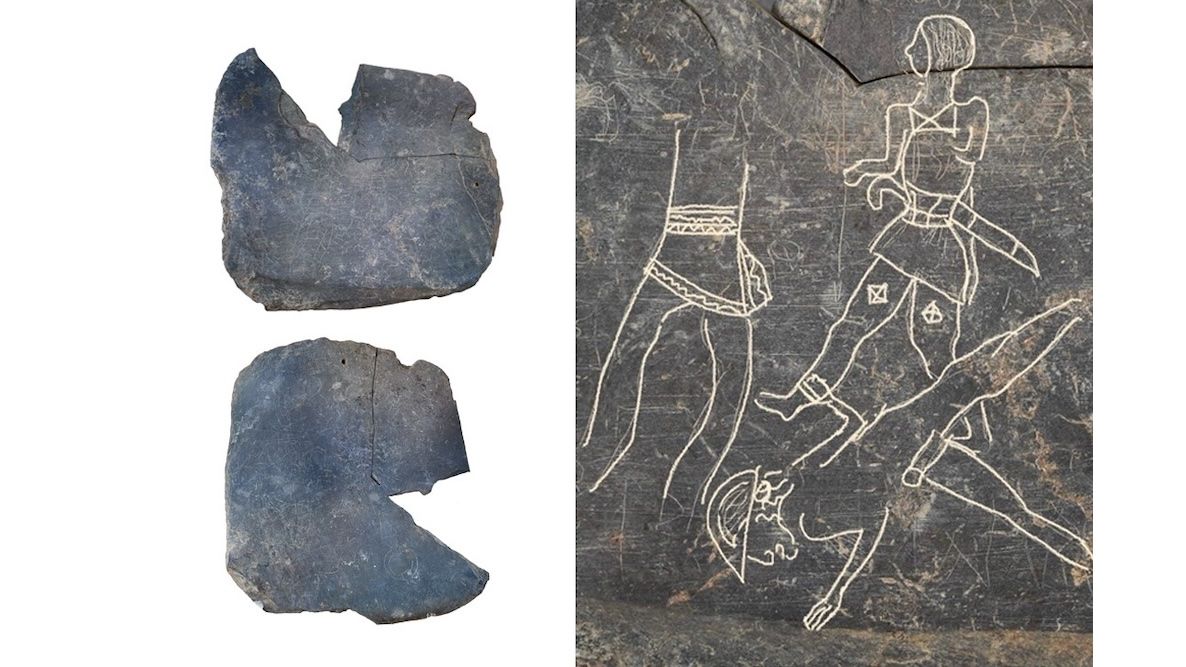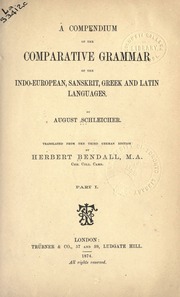Probably ascending in Nethack. With a wizard orc! (Not a good combo, but I’m stubborn.) I even #chatted with Famine for shits and giggles.
Lvxferre
The catarrhine who invented a perpetual motion machine, by dreaming at night and devouring its own dreams through the day.
- 12 Posts
- 128 Comments

 2·23 hours ago
2·23 hours agoThey’re mostly safe. Don’t taunt them, don’t get too close to them (specially not to veals and bulls), and eventually they’ll see you as “safe to ignore”.

 1·4 days ago
1·4 days agoSmall tidbit that I found interesting:
Finally, the urn in L-8 not only contained bone remains and a gold ring carved with Jano Bifronte, but it was also filled to the brim with a reddish liquid.
That ring was likely something that the deceased wore in life, either as an ornament or to show their “role” in society. Still, the fact that a funeral item was carved with Janus - the god of the beginnings and ends - seems fitting.
I get what you’re saying; Lemmy is not Reddit, Lemmy is Lemmy.
However, I think that this mostly misses the point. The issue is not to copy neutral-to-positive features from Reddit; it’s to copy the negatives, or to fail to implement other positives.
I’m already preparing some simple art to do in the canvas. Nothing fancy, just a few (30px)² pictures. And if people make some Tux or distro logos I’m happy to help, too.
I just wish that people didn’t waste SO MUCH FUCKING SPACE with government flags in this sort of online game.

 2·6 days ago
2·6 days agoI used to love the games that they put out. Nowadays to be honest I can’t be arsed to play even pirated versions of them.
I still want some competition for the
Liquoria / Bob Ross Universalis / Incest and Murder SimulatorVic / EU / CK series.

 3·8 days ago
3·8 days agoOr they would compete to see which one can release the biggest amount of shitty DLCs, since Paradox is by no means better than EA.
For a good example of that, look at Europa Universalis IV; the game has, like, 20 DLCs? And the playerbase has been complaining nonstop about the more recent ones; Leviathan for example was the worst reviewed game on Steam, to give you an idea.
Don’t get me wrong, I do think that EA needs some competition here, but Paradox won’t be the ones doing it. (And Paradox needs competition for grand strategy games.)
That’s some great read.
Those muppets (alt right talking about antiquity) are a dime a dozen. You see a lot of them in 4chan, too. They look at the past with a “the grass was greener” mindset, cherry picking stuff to justify their political bullshit, without a single iot of critical thinking.
And they usually suck at understanding the past, as their cherry picking doesn’t allow them to get a picture of how and why things happened. They obsess over the Roman Empire and Sparta, but when you talk about the Republic or Athens they go into “lalala I’m not listening lalala” mode - because both contradict their discourse of “we need a strong rule, like people in the past, to fight against degeneracy”.
They’ll also often screech if you mention why Octavius adopted the title of “imperator” (emperor) instead of “rex” (king). Because guess what, once they acknowledge why people in Republican Rome saw kings with disdain (kingdom = primitive system and breeding grounds for tyranny), all their political discourse goes down the drain, so Octavius had to “sell” his stupid idea under a different name.
Don’t tell them about the Aurelian Moors, by the way. Or Caracalla’s familiar background. Or do tell them, if you enjoy seeing them screech.

 7·14 days ago
7·14 days agoGuys, regarding white ethnonationalism: the key word here is egregious.
Sure, you got fascists who are not ethnonationalists. Or who are ethnonationalists towards another “race”, such as the Hindutva ideology. However, white ethnonationalists are an egregious example. They exemplify the issue with fascism amazingly well, because they’re the worst of the worst, and they’re extra common.

 2·15 days ago
2·15 days agoYou’re supposed to start with “Pardon me, I couldn’t help but overh…” no no no wait nevermind that’s a different type of troll, my bad.

 7·15 days ago
7·15 days agoA good troll should require barely any intervention from the person trolling. This chain has 20 comments; nine are yours. 9/20 = you suck at trolling. Sauce.

 2·16 days ago
2·16 days agoLots of good suggestions there. It would be great if @barsoap@lemm.ee mentioned at least !privacy@lemmy.ca and !privacy@links.hackliberty.org in the OP.

 3·17 days ago
3·17 days agoI’m thinking that perhaps the community could/should go a step further, and create another instance to talk about open source and privacy. That would be IMO the best scenario - it would be a great counterpoint to .ml, and it would avoid centralising Lemmy around .world even further.
(I also feel like this might be better even for the devs. Administrative work isn’t exactly pleasing, and if I had to take a guess they mostly maintain that instance because they need it for the software. But that’s just a guess, don’t trust me on that.)
inb4: yes, I know - easier said than done. But I feel like it could be a good option.

 14·17 days ago
14·17 days agoThe way that I see it, the issue with lemmy ml’s administration and moderation is not quite political in origin. It’s about transparency; and I think that this wall of text that I wrote about how lemmy dot ml handled ani.social shows it well, as the dispute in question was not political in nature. (I can abridge it at request.)
With that out of the way, most of your suggestions boil down to “use lemmy.world instead”. I don’t have anything against LW’s administration, but I think that it’s foolish to concentrate people and activity there even further, it defeats the point of a federation. That instance is already 40% of the MAUs, and hosts the largest comms using Lemmy.

 2·17 days ago
2·17 days agoThe article doesn’t mention the size, but the stem is 15~30cm long, and most of its height. For comparison some ferns reach 100x that size.

 2·26 days ago
2·26 days agoAnd a heartfelt hi from another A Clockwork Orange fan. I bloody love the book. (And the movie, too.)
Truth is, I was trying to be simple, so I mentioned the horns/guampas in MS instead. It seems to me that they (you?) consume mate far more as tereré than hot mate/chimarrão. Even some of the folks in Paraná’s third plateau would rather use glasses. (I’m from Curitiba, so rather far from them. The first time I saw it - mate on a large glass, with lemon soda - I couldn’t help but “…what?” It’s comfy in the summer though.)
I’ve been thinking about social mechanics in online environments for a few years, and this arsehole filter definitively sounds true for me. I think that it has a twofold mechanism:
- it’s easier to endure arseholes if you’re one
- your behaviour sets up the example for newbies
So arseholes have a higher re-incidence and proliferation than nice people.
I also think that this applies to assumptive/dumb/disingenuous vs. smart, and entitled/whiny vs. contributive people. If that’s correct then the phenomenon is likely wider, and we could actually measure it for something else. It wouldn’t prove that the arsehole filter is true, but it would strengthen the hypothesis.

 12·29 days ago
12·29 days agoInstantly joined it.
I actually like LLMs and diffusion models. But I’m not going to pretend that the fairly solid criticism, that makes people say “fuck AI!”, is unfounded. Fuck the people developing AI, and marketing it, and shoving it down your throat even when you don’t want it. And also some of the ones using it.

 3·29 days ago
3·29 days agoEven when drinking alone, there are often rituals. It’s the same in spirit for everyone, but the specifics are individual. For me it plays a lot like in a certain song: waiting for the water to heat up without boiling, thinking about life, often watching the sunrise or recalling some dream.
Perhaps that’s why the Druze would stick with the custom, too. I think that they “get” it - it isn’t just “drinking”, it’s also the introspection that comes with it.
There are also plenty local differences. For example, the grandpa in the pic has a coconut-shaped gourd, fairly common there in Uruguay; here in Paraná (1000~1500km up north), in Santa Catarina and in Rio Grande, gourds typically have a large lip, like mine:

The ones that I saw the most in Argentina are from a third style, kind of a middle ground between my gourd and that grandpa’s gourd.Then to the West (Paraguay, Mato Grosso do Sul, and even a chunk of Paraná) you’ll often see people using cow horns for tereré.
What you drink might also change depending on the place. Even among hot mate drinkers; for example the further south you go, the more roasted is the yerba. It can be also coarse or almost like a flour in texture.











Here’s some further info on what he mentions in 4:20 and 5:00, about ōs vs. ŏs and the asymmetrical vowels system.
Latin had two sets of vowels: long /ā ē ī ō ū/ and short /ă ĕ ĭ ŏ ŭ/. And all Romance languages got rid of that length distinction (some redeveloped it like Lombard, but the “old” system was gone). However, how they did it was different, following mostly three different patterns:
So the outcome of long vowels and short /ă/ was mostly the same in all of them (in the short term). But focus on the last two columns: Western Romance is lowering all non-low vowels, Eastern Romance only the front ones, and Sardinian… simply kept them where they were?
Accordingly to this video, Western African Romance varieties followed the same pattern as the ones in Eastern Europe, and the ones spoken closer to Italy (what’s today Tunis) followed the same pattern as Sardinian.
This might sound odd - like, between Morocco and Romania there’s a whole Mediterranean, why the hell are they undergoing the exact same sound changes? But it actually makes sense when you remember that sound changes don’t spread instantaneously. And that those vowel systems are not the result of one, but three sound changes:
Change #1 was likely a pre-requisite for change #2: unless a dialect centralised the front vowels, it wouldn’t centralise the back vowels. Change #3 was independent of the other two, but once it happened it blocked the centralisation.
Now, let’s say that changes #1 and #2 happened in the Italian peninsula. And that #3 would happen way to the south, like Sardinia or [what’s today] Tunis. Then those changes start spreading out.
Once #3 reaches the Western European dialects, #1 and #2 already happened; so they centralised all the short vowels. However, neither #1 nor #2 had any chance to develop in Sardinia or Tunis, as #3 happened rather early in those places.
But what about places far away from both Tunis and Italy? #3 would eventually reach the Latin spoken in those regions; late enough so #1 happened, but early enough to prevent #2. That’s why Mauritanian Romance, Balkans Romance, and potentially Mozarabic* ended with an asymmetrical vowel system.
*“Mozarabic” aka Andalusi Romance is a catch-all for the indigenous Romance varieties from Southern Iberia. Eventually replaced by the varieties spoken up north in Reconquista times.